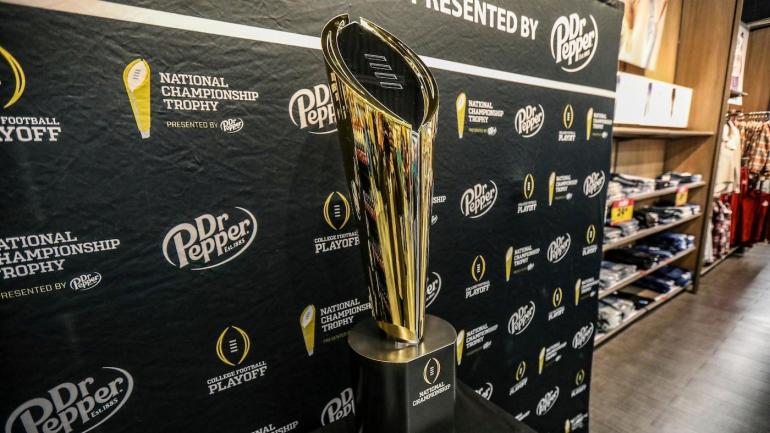
The College Football Playoff has finalized a six-year media rights extension with ESPN to broadcast the postseason games through the 2031 season, it was announced on Tuesday in a joint statement. The agreement beginning in 2026 will pay the CFP about $1.3 billion annually, sources confirmed to CBS Sports' Dennis Dodd, which triples the amount of the previous contract.
"We are delighted to continue our long-standing relationship with ESPN," said CFP executive director Bill Hancock. "It's a significant day for the CFP and for the future of college football. The depth of coverage that ESPN gives to the sport throughout the season is second to none. There is no better platform to showcase this iconic championship as we move into the new 12-team format because ESPN's people love college football every bit as much as we all do."
While the format of the playoff beginning in 2026 is still under consideration, the postseason will feature a minimum of 12 teams under the new deal. However, discussions have centered around a 14-team College Football Playoff field beginning in 2026, according to Dodd. The contract also gives ESPN the right to sublicense a select number of games and sell them to other networks.
The updated revenue model, which served as the catalyst for this new deal being struck, will significantly benefit the Big Ten and SEC, launching them firmly ahead of the Big 12 and ACC moving forward. The new contract will pay the Big Ten and SEC 29% of the upcoming contract, sources tell Dodd, which works out to approximately $22 million per school. The ACC will receive 17% ($13-14 million per school) and the Big 12 will sit around 15% ($12 million per school). The numbers represent a raise across the board as all Power Five institutions receive approximately $5 million per school in the previous contract.
The ACC will receive a slightly higher payout in the next contract as the league has produced eight CFP semifinalists to only two in the continuing Big 12, according to ESPN. The proposed contract includes a "look-in" clause that allows the CFP to adjust payouts in 2028 based on performance or if there is another round of realignment.
The Group of Five will split 9% of the contract, but the number may not be split evenly among the teams and five conferences. The independent schools will split 1%, while Notre Dame will get the bulk at around $12 million, according to multiple reports.
A 14-team playoff would represent a departure from the 12-team field, which was agreed to for the final two years of the previous media rights contract. The CFP will hold the first 12-team playoff in 2024 as the initial television rights deal is slated to expire after the 2025 College Football Playoff.
When discussions began, sources told CBS Sports that the Big Ten and SEC would seek to receive as many as four automatic qualifiers each -- eight total -- in an expanded playoff. Coming out of the first College Football Playoff Management Committee meeting, it seemed as if a "3-3-2-2-1" model was gaining the most traction; that would have the Big Ten and SEC receiving three AQs, the ACC and Big 12 getting two each and the Group of Five being guaranteed a playoff bid with three at-large spots remaining.
As part of that model, the Big Ten and SEC sought to be guaranteed the only two byes in the bracket on an annual basis with their respective conference champions immediately advancing to the second week of play.
Discussions pivoted after that proposed format led to a substantial outcry with fairness being immediately called into question.





















